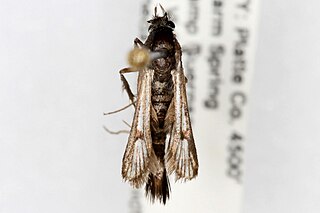
Carmenta is a genus of moths in the family Sesiidae.
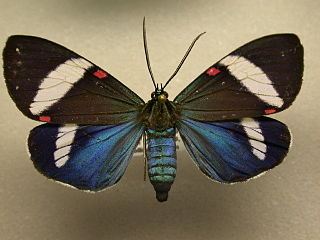
Hypocrita is a genus of tiger moths in the family Erebidae. The genus was erected by Jacob Hübner in 1807.
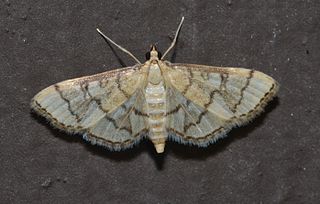
Blepharomastix is a genus of moths of the family Crambidae described by Julius Lederer in 1863.
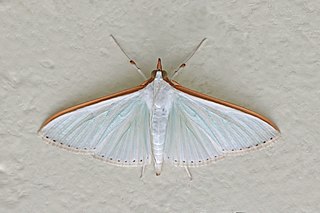
Diaphania is a genus of moths of the family Crambidae.
Erupa is a genus of moths of the family Crambidae.

Pyrausta is a speciose genus of moths of the family Crambidae. The genus was erected by Franz von Paula Schrank in 1802.

Phostria is a genus of moths of the family Crambidae.

Pilocrocis is a genus of moths of the family Crambidae. The genus was first erected by Julius Lederer in 1863.

Polygrammodes is a genus of moths of the family Crambidae.
Salbia is a genus of moths of the family Crambidae described by Achille Guenée in 1854.

The International Challenge Cup is an annual figure skating competition generally held in February or March in The Hague, Netherlands.
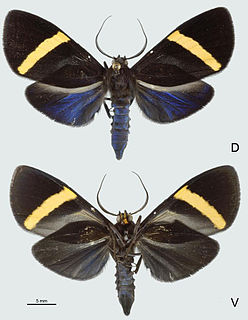
Getta is a genus of moths of the family Notodontidae. It consists of the following species:

Getta baetifica is a moth of the family Notodontidae first described by Herbert Druce in 1898. It is endemic to the western slopes of the Andes in Colombia and Ecuador.
Nebulosa is a genus of moths of the family Notodontidae. It consists of the following species:

Erbessa is a genus of moths of the family Notodontidae. It consists of the following species:

Delias ennia, the yellow-banded Jezebel, is a butterfly in the family Pieridae. It is found in Australia, Indonesia, Papua New Guinea and several surrounding islands.

Synanthedon is a genus of moths in the family Sesiidae.
Erbessa avara is a moth of the family Notodontidae first described by Herbert Druce in 1899. It is found in Ecuador.
Ennia Thrasylla, was a Roman noblewoman who lived in the 1st century AD in the Roman Empire.
This page is based on this
Wikipedia article Text is available under the
CC BY-SA 4.0 license; additional terms may apply.
Images, videos and audio are available under their respective licenses.













